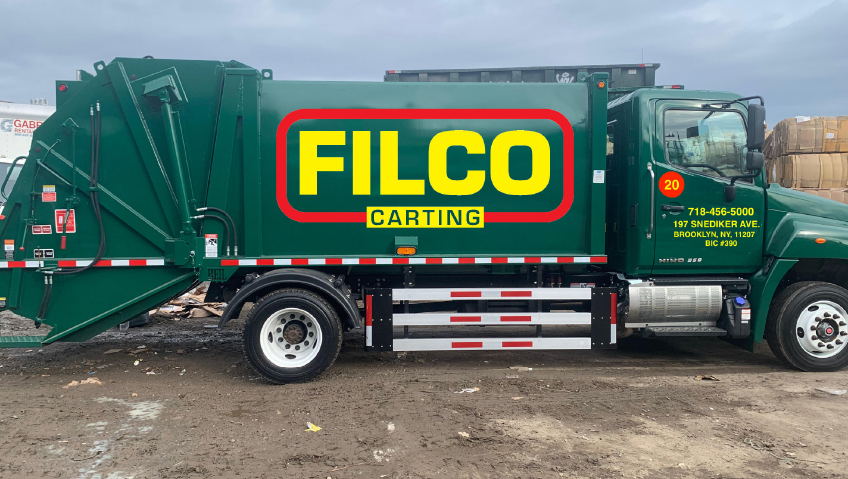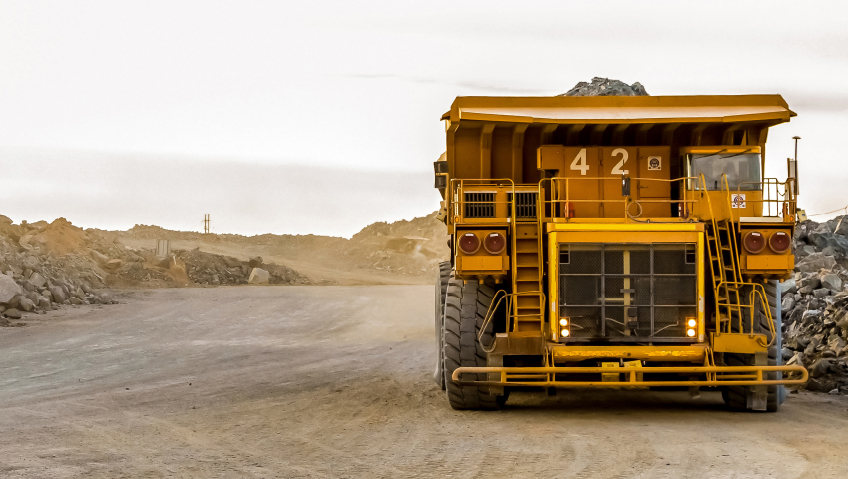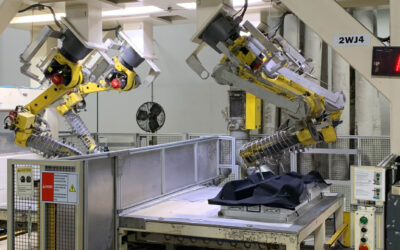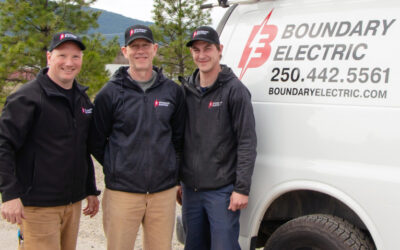When Filco Carting Corp. was launched in 1910, the company’s assets consisted of a horse and wagon used to haul rubbish from Manhattan’s garment district. Today, family-owned Filco is one of New York City’s most prominent waste removal companies, with a fleet of modern trucks.
Filco Carting collects solid waste for commercial, residential, industrial, and institutional clients in all five Big Apple boroughs. The company also serves Long Island and upstate New York through partner firms.
Having endured COVID—which saw a massive drop in office garbage pickup—Filco now wants to expand its reach and enhance existing operations. The company is also waiting to see how a new municipal commercial waste zones program plays out.
“We’re looking at it as an opportunity to grow. That’s why we ordered twenty-one new trucks, and we’re going to break ground on a new plant. We’re getting ready,” states President and Chief Executive Officer Domenic Monopoli, whose great-grandfather founded the firm.
Introduced in late 2019, the commercial waste zones program divides New York City into twenty territories, each to be served by a maximum of three private garbage carting companies. The city’s goal is to streamline trash pickup, reduce truck traffic from private waste firms, enhance safety through such measures as driver training requirements, and improve recycling efforts.
Filco, like its competitors, has put together bids for obtaining work within the demarcated commercial zones. It has also applied for a license to offer services in New Jersey, a move that would expand its business beyond New York State.
The company does more than just garbage pickup. It also rents debris containers to construction sites, hauls organic waste, and destroys documents. Filco’s organic services help New York City restaurants meet mandates to separate organic material from other waste as it uses specialized vehicles to pick up organic waste from eateries. Document destruction involves shredding or burning confidential papers from financial institutions. The company can also supply a shred truck or pack paper into a regular garbage collection vehicle and ship it to an incinerator.
Headquartered in Brooklyn, Filco has a storefront office and 100,000 square feet of space across the street for trucks and rental containers. This space also contains facilities for welding, repairs, and safety training. The storefront office is being expanded, and the company wants to open a 25,000-square-foot facility with a baling machine and sorting system.
Filco’s energetic promotional strategy reflects the company’s optimism for the future. The firm runs radio ads, has “seven salesmen on foot at all times, is heavily involved in social media platforms, and is considering a billboard,” notes Monopoli.
Prior to COVID, the commercial sector brought in the most revenue, he says. When the pandemic struck in force in March 2020, however, many downtown Manhattan office buildings cleared, as employees were told to work at home. With offices producing less waste, commercial business declined. This was a disaster for a firm that traditionally did much of its work on Manhattan Island.
“We lost eighty percent of our business,” he states. “Once the office buildings and restaurants closed, we were lucky enough to still service all the utilities in the City of New York and all the city buildings and fire department and police department and hospitals. That’s what kept us alive. If we didn’t have that it would have been very, very difficult to stay alive.”
Filco also hauls waste for state and federal government facilities based in New York City. “Manhattan Island is coming back, but it’s not where it was pre-pandemic. But the industrial marketplace is booming. So, I would say right now industrial is more of a revenue base,” he continues.
The decrease in office business, however, meant the company had to lay off staff. Personnel numbers decreased from 145 employees at the time we last spoke in 2020 to 105 today.
COVID also pushed Filco to beef up its already comprehensive health and safety procedures to prevent the virus from infecting staff. Garbage collection can be hazardous at the best of times, made worse by dense New York City traffic and pedestrians and drivers distracted by smartphones and other electronic devices.
Given this, the company is “always very keyed up on safety. Safety is our thing,” states Monopoli. “In normal times, we supply boots, gloves, goggles, and helmets. We started giving out masks and disinfected trucks between shifts. There was sanitizer in the trucks, by the time clock, and in the bathroom. I had to keep workers as safe as I could.”
The company also relies on technology and intensive training to keep its workers safe. Filco drivers go through the Smith System training program, a series of courses about defensive driving techniques for operators of work vehicles. Weekly toolbox meetings are held to discuss safety matters, and each spring, the company hosts a mandatory Saturday morning gathering for all staff. Accidents and incidents of the past year are discussed, with a view on how to avoid such events in future. Guest speakers offer additional insights about driver safety. Trucks are routinely inspected and well-maintained, and Filco has mechanics on staff.
To enhance safety and productivity, company trucks contain camera systems that improve visibility for drivers and GPS units. Drivers are given computer tablets that provide route information. “In New York, you never know where there’s going to be traffic or a fire,” Monopoli points out. Office staff can remotely monitor truck speed, stops, and other performance indicators.
While most of its work centers on commercial and industrial clients, the company does have a few residential customers. In New York City, the municipal Department of Sanitation picks up residential refuse and recycling while private firms handle the rest. The sanitation department does twice-weekly runs. Some wealthy denizens of Manhattan, however, want daily waste collection and hire Filco to fill the gap.
Clients who are both rich and famous have additional concerns. Obsessive fans have been known to pilfer garbage put out by New York City-based celebrities, in the hope of finding mementoes. To prevent such unseemly looting, celebs often put security guards around their trash bins and rely on private collection for expeditious service. “We time it perfectly. Security informs us when [the garbage is] out, and we come and pick it up,” states Monopoli.
This approach fits with Filco’s customer-first credo. Indeed, the company’s impressive longevity can be attributed to a combination of hard work, determination, and a service-oriented ethos, he says. “We always did everything right. We always had the right insurance. You never cut corners. Either you do it right, or you don’t do it at all.”
Family ownership is another strength, as far as Monopoli is concerned. From the earliest days, this has been a family-run business. “In our world, the oldest brother ran the show. You basically worked for him. Everyone seemed to get along and work.”
He is currently the sole owner, although he has sisters and other family members working alongside him. The plan is to keep Filco a family firm going forward, he says.
Taking an active interest in community affairs is also part of the company’s family focus. When COVID hit, the firm teamed up with a group called the Cypress Hills East New York Coalition to provide food for needy families. In addition, it hands out turkeys at Thanksgiving, free backpacks filled with school supplies for kids each fall, and gifts at Christmas. “We buy thousands of Christmas presents because no child should wake up without a present,” says Monopoli.
The company has earned kudos for its generosity. In late 2020, Brooklyn Borough President Eric Adams (now mayor of New York City), presented Filco with a citation for feeding families. In 2021, the company received several additional awards from city and state legislators for performing charitable work. These activities “are something we need to do. While we have the ability, we will continue to do it,” Monopoli states.
The company has a unionized workforce, using drivers from Laborers Local Union 108. Monopoli, who is an employer trustee for this local, wants to see Filco return to a pre-pandemic level of employment.
“If I’m successful winning the zones I’m bidding on and I purchased those twenty-one trucks, you’re definitely going to need another fifty to sixty, maybe seventy guys. Then, when we have the plant up, that’s another thirty guys. If everything goes well, over the next twenty-four months, we’ll have a minimum of fifty to sixty more employees,” he states.
In five years, he’d like to see the company “about fifty percent bigger than it is. I would also like to make sure it’s still family-run.”
“We are so fixated on service, service, service. We’ll continue to be that way. We’ve been successful for 111 years, so don’t mess with the recipe. It’s about being respectful; it’s about the best service in New York; it’s about the best equipment in New York; it’s about the best union men in New York. We’ll just continue with that recipe and hope for success.”













